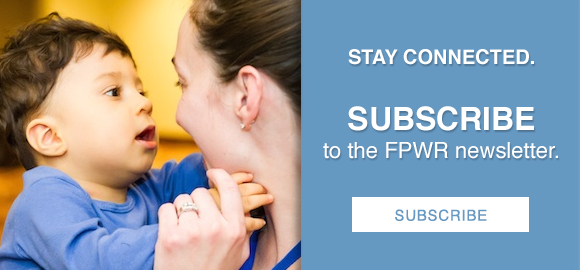 Behavioral challenges are among the most difficult aspects of Prader-Willi syndrome (PWS). These challenges affect the individual, family, school, and community. Anxiety, rigidity, and difficulty with transitions can make daily life unpredictable and stressful for parents, teachers, and caregivers. Understanding why these behaviors occur, and how to manage them, helps individuals with PWS reach their full potential.
Behavioral challenges are among the most difficult aspects of Prader-Willi syndrome (PWS). These challenges affect the individual, family, school, and community. Anxiety, rigidity, and difficulty with transitions can make daily life unpredictable and stressful for parents, teachers, and caregivers. Understanding why these behaviors occur, and how to manage them, helps individuals with PWS reach their full potential.
To provide practical, research-informed strategies, leading experts in PWS shared their insights:
-
Dr. Kate Woodcock (University of Birmingham), researcher on cognitive and emotional processes in PWS.
-
Patrice Carroll, LCSW (Latham Centers), clinician specializing in behavior management in PWS.
-
Elizabeth Roof, MA (Vanderbilt University), senior research specialist with decades of family experience.
-
Dr. Anastasia Dimitropoulos (Case Western Reserve University), developmental psychologist focused on social and behavioral functioning in PWS.
Their combined expertise offers a powerful, practical framework for understanding and managing behavior in children and adults with PWS.
1) Understanding the Link Between Hyperphagia and Behavior
Parents often ask whether treating hyperphagia (insatiable hunger) will reduce behavioral challenges. The experts agreed that reducing hunger can lower anxiety and improve quality of life, but not all behavior stems from food.
“Even when hyperphagia is well managed, challenges with schedules, transitions, and anxiety often remain,” said Elizabeth Roof. “We know there’s more going on than just hunger.”
Dr. Anastasia Dimitropoulos added that people with developmental differences, with or without PWS, can experience frustration and rigidity that lead to behavior challenges.
“Reducing hunger can help,” she explained, “but we also need to address anxiety, flexibility, and coping skills.”
2) Positive Reinforcement Works Better Than Punishment
Across the board, the experts advised against traditional punishment for individuals with PWS. Focus on positive reinforcement and natural consequences.
“Threats and ultimatums usually backfire,” said Roof. “It’s better to lead them toward success rather than try to push them there.”
Natural consequences, such as missing an activity because time ran out, build understanding without shame or confrontation. Patrice Carroll emphasized that visual supports, predictable structure, and positive rewards are more effective than negative consequences.
“If we spend more time focusing on what’s going right, we’ll see fewer behavior problems,” she added.
3) Helping Schools and Caregivers Understand PWS
When communicating with teachers or extended family, share two or three clear priorities. Food security, structure, and positivity are good starting points.
Carroll encourages parents to balance conversations about challenges with a stronger emphasis on strengths:
“Make sure every negative point is balanced with two positives. Our kids are funny, smart, creative, and wonderful to be around—schools need to hear that.”
Dr. Dimitropoulos stressed the importance of age-appropriate food security plans. For example, a teenager’s lunchtime setup may need to protect food access and support social inclusion. Prevention is key; set boundaries before problems arise.
4) Building Flexibility at Home
Rigidity is common and exhausting for families. Dr. Woodcock’s work focuses on flexible thinking. Build small moments of flexibility into daily life.
“Take baby steps,” said Roof. “Even changing your route to school one day can help. Make it fun. Call it ‘Crazy Friday’ and celebrate that you still got there safely, even though things were different.”
Dr. Dimitropoulos suggests play-based learning to help younger children practice flexibility. Try changing storylines during pretend play, or use characters to work through changes indirectly.
Social stories are another powerful tool.
“You can write a quick story for any scenario. It helps your child visualize and prepare for change,” noted Carroll.
5) Encouraging Responsibility without Setting Up Failure
Families often ask whether children will one day take full responsibility for food or other choices. The experts were clear: independence can grow, but structure and supervision remain necessary.
“It’s not about maturity or intelligence,” Roof said. “It’s about biology and hunger signals. Expecting full responsibility sets them up to fail—it’s not fair to them.”
Instead, help your child experience safe independence within structured boundaries. If a food violation happens, focus on fixing the system, not punishing your child.
“If a child gets food, that’s a systems issue,” said Carroll. “We don’t punish. It’s a sign something in the environment needs adjusting.”
6) Practice the Pause, and Don’t Give In
Many parents find success by adding wait time before expecting compliance. Carroll explained that individuals with PWS often lack an internal pause in executive functioning.
“That moment to decide, without pressure, can make all the difference,” she said.
In public, avoid giving in to stop a scene, since that reinforces the behavior. Set expectations in advance and follow through consistently, even if you need to leave.
“Giving in just once is like a slot machine jackpot,” Roof explained. “They’ll keep trying until it pays out again.”
7) Find Joy, Celebrate Progress, and Stay Connected
Above all, every expert emphasized the importance of seeing the whole child. Focus on their humor, creativity, and resilience. Small moments of progress deserve to be celebrated, and sharing those successes helps educators, caregivers, and families stay encouraged.
As Carroll summed it up beautifully:
“The list of good things about your child will always be longer than the list of challenges.”
Moving Forward with Confidence
Managing behavior in PWS can feel overwhelming. Consistent, positive strategies make a real difference. Focus on structure, flexibility, and celebrating progress. These steps help children with PWS thrive at home, at school, and in the community.
For practical guidance and ongoing support, connect with others facing similar challenges by joining our community and choosing how you would like to receive updates.







